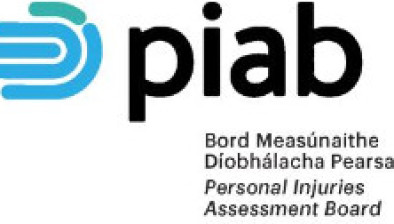High Court: Court approves €32,500 ‘all-in’ figure for child who lost fingertip while ice skating

The High Court has accepted a proposed settlement of €32,500 for a boy who lost the tip of his little finger while ice skating. In so ruling, the court held that the offer was appropriate in circumstances where there was a “real likelihood that the personal injuries claim would be dismissed”.

About this case:
- Citation:[2022] IEHC 66
- Judgment:
- Court:High Court
- Judge:Mr Justice Garrett Simons
Further, the court was required to measure the plaintiff’s legal costs because the settlement was an “all-in” figure. The court reduced the fee of the solicitor to €2,500, holding that the case was not particularly complex and that counsel had been engaged to provide significant assistance in the matter.
Background
The plaintiff was eight years old at the time of his accident. In November 2013, he was ice skating with his family on a synthetic rink operated by the defendant. The plaintiff slipped on the surface and, unfortunately, another person skated over his left hand.
The plaintiff suffered a partial amputation of his little finger. He was rushed to hospital, where attempts were made to reattach the finger tip, but this proved to be unsuccessful. The top of his finger was terminated and closed with sutures. His little finger was approximately 17 millimetres shorter than his other finger.
The plaintiff was discharged following surgery and attended hospital as an outpatient while his wound healed. He also attended mental health services to deal with the trauma of the accident. The report of a consultant plastic surgeon in 2017 outlined that the plaintiff had made a good recovery from his accident, with even grip strength in both his hands. There was also a clinical psychologist’s report which outlined the significant short and long-term sequelae for the boy.
Personal injuries proceedings issued against the defendant in 2015 with a defence delivered shortly thereafter. Liability and causation were in issue in the case. A settlement offer of €7,500 was made in November 2020, which was rejected by the court as not being a reasonable offer.
Further offers were made by the defendant, which culminated in an “all-in” offer of €32,500, with €20,000 apportioned to the plaintiff and €12,500 apportioned for legal costs. There was a renewed application for settlement in November 2021, where the court indicated a concern about the level of costs in the case. Further affidavits were produced to assist the court on the proper amount of costs to be paid.
A report from a legal costs accountant was also prepared for the court.
High Court
Delivering judgment in the case, Mr Justice Garrett Simons began by outlining the necessity for court approval of settlements in cases involving child plaintiffs. The court noted that a child does not have capacity to maintain proceedings and that a next friend could also not compromise proceedings on their behalf. Further it was noted that a next friend could be fixed with costs of unsuccessful litigation.
The court commented that judicial oversight of settlements involving children was necessary to protect their interests, with the court being able to provide a neutral assessment of the claim. It also provided a safeguard against possible error.
It was noted that the proposed terms of settlement in the present case were unusual because it was not envisaged that there would be any adjudication of costs. Rather, more than one-third of the €32,500 would be used to pay for costs, the court said. As such, in discharging its obligation to the plaintiff, the court held that it must consider whether the proposed costs were reasonable.
Having regard to the issues with liability and causation, the court held that there was a “real likelihood that the personal injuries claim would be dismissed”. It was held that a trial judge may have taken a view that ice skating was an inherently hazardous activity and the risk of the plaintiff’s accident could not be excluded. The court distinguished Naghten v. Cool Running Events Ltd [2018] IEHC 452; [2021] IECA 17, which concerned injuries while exiting an ice rink rather than injuries which occurred during skating.
The court considered that the notional full value of the case lay between €35,000 and €45,000, having regard to the Book of Quantum. It was held that the normal function of the plaintiff’s hands would likely yield a maximum of €30,000 at trial, with a further €5,000 to €15,000 for psychological damage.
As such, the court was satisfied that the all-in figure of €32,500 represented a fair offer. The court noted that there was the potential for a differential costs order to be made against the next friend in the case due to proceedings being taken in the High Court.
Turning to consider the costs, the court held that the case was “very straightforward” from an evidential and legal perspective. The court held that this lack of complexity was exemplified by senior counsel only marking €350 plus VAT for an opinion. The modest sums reflected the level of work involved, the court said.
There was no need to retain two counsel in the case and therefore the costs should be confined to one counsel, the court held. It was noted that counsel’s fees came to €2,480 plus VAT, with most of that figure arising from the two infant ruling applications to court.
However, the court was not satisfied to order €4,600 for solicitor’s costs. The advices from the legal costs accountant stated that €9,500 plus VAT was the appropriate professional fee in a similar case. The court held that no attempt was made to explain how the figure of €9,500 was calculated and it was not clear what documents had been reviewed by the accountant. The court stated that the costs report was unsatisfactory as it did not assist the court at all.
The court held that the appropriate solicitor’s fee was €2,500, which reflected that the burden of work was shared with counsel. The stated that counsel had significant input to drafting proceedings and providing advices, while the solicitor’s input was “largely confined to the curation of the case”. Further, it was noted that the solicitor’s original letter to the client advised that a rate of €100 per hour would apply. As such, the court held that the figure of €2,500 was a fair reflection of the work done.
Conclusion
The court approved counsel and expert fees and reduced the solicitor’s fee, meaning that legal costs came to approximately €8,500. As such, a figure of €24,000 was to be paid into court and held for the plaintiff until he reached 18 years of age.









